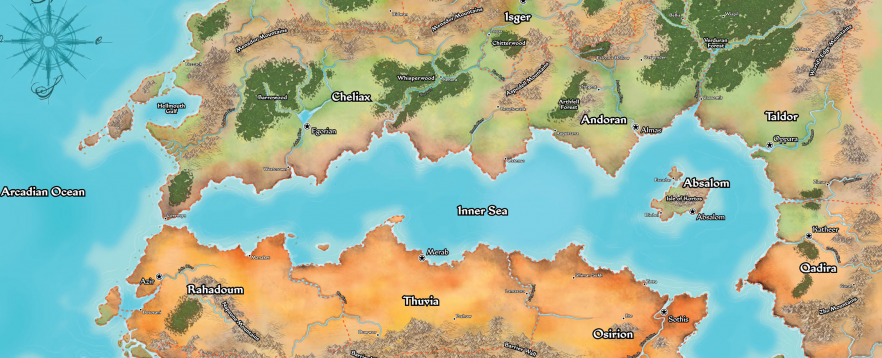- he looks delighted. "So imagine that you want to do a shipping venture, or a long overland caravan, or you want to plant lots of crops in an area that's prone to floods in some years that might make you lose the whole crop. Let's say you'll make a hundred gold if you succeed, and only have to spend forty up front, and you estimate a half chance that your ship will be sunk in a storm or your caravan attacked by bandits or your crops flooded. This is worth it, right, if you take lots of bets like those on net you'll end up richer. But most people still won't do it, because they look at reasonable odds of being utterly ruined and decide to spend their money on something else instead.
But a big organization, like a church, isn't going to be devastated by any given venture failing. So they can sell - a promise that you won't be ruined if your venture doesn't work. Usually it's in the form of something like 'you pay twenty gold for a promise that if your expedition fails, we'll give you thirty-five.' That's insurance. And then people will do chancy things, and if we were right in the first place that the chancy things were worth it then overall both sides of this transaction will get richer.
But what if we were wrong in the first place that the chancy things were worth it? Well, instead of the church making a blanket promise to pay back twice your gold if you lose, the church hires a hundred smart people, gives them a lot of money, and tells them to take as many sensible bets of this form as they can. And they investigate ocean conditions and bandit conditions and flood history and decide what prices to set, and the ones who are good at it are obviously good at it, because they end up richer. And after a while you know who's good at setting insurance prices, and the prices are information for the merchant, too - if no one will sell them insurance at a reasonable price then probably the venture is more risky than they thought it was!
The Church sells insurance on everything. Ordinary farmers are encouraged to insure themselves against crop failure or the death or illness of a working-age man, and they get pensions if anything happens. Mahdi has insurance out on his own death. And that means that risks are all - distributed among a bunch of participating parties as bets, and no one has to lose everything. There're some situations it's tricky for - if there's another famine like the year Aroden died, there's no food to be distributed, doesn't matter how clever you are about distributing force if enough of it hits - but for ordinary ventures, ordinary lives..."

